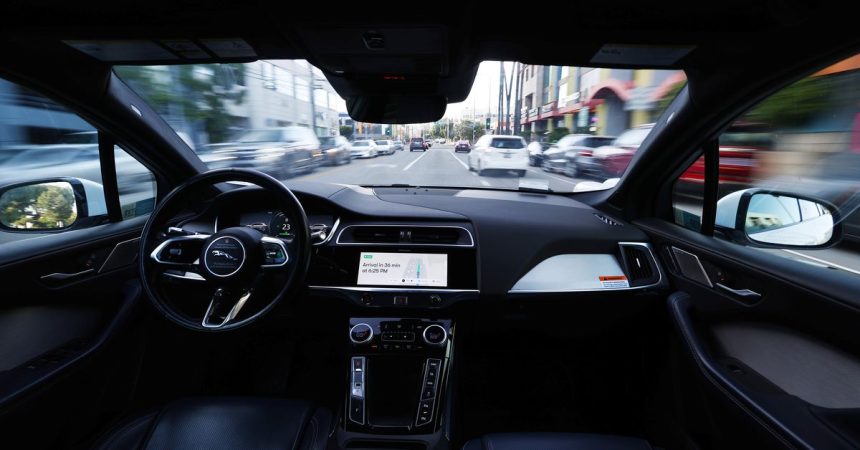Waymo, Alphabet’s autonomous driving subsidiary, has solidified its position as a frontrunner in the robotaxi industry, boasting impressive growth and operational scale in stark contrast to competitors struggling with funding or technological hurdles. The company recently announced a milestone of 4 million driverless rides provided in 2024 across its operational areas of Phoenix, San Francisco, and Los Angeles, representing a significant leap from the cumulative 1 million rides previously achieved. This exponential growth underscores Waymo’s ability to translate technological advancement into real-world service and solidifies its market leadership. Expanding beyond sheer ride numbers, Waymo riders collectively spent 1 million hours in the company’s autonomous vehicles during 2024, showcasing growing customer adoption and reliance on the service. This increasing utilization also highlights the environmental benefits of Waymo’s fully electric fleet, having avoided over 6 million kilograms of CO2 emissions based on estimated trip lengths and passenger occupancy.
Waymo’s success is not just about quantity but also about building a personalized and engaging customer experience. The company launched a “Year in Review” feature within its Waymo One app, mirroring the popular Spotify Wrapped concept. This feature allows users to delve into their personal usage statistics, including total miles traveled, emissions avoided, and favorite destinations, fostering a deeper connection with the service and highlighting the individual benefits of autonomous ride-hailing. Analyzing popular destinations reveals strategic insights into Waymo’s service impact. Sky Harbor International Airport in Phoenix emerged as the top destination in that city, emphasizing the significant demand for airport transportation and hinting at the potential for future growth in this segment. Similarly, the Ferry Building in San Francisco and The Grove shopping center in Los Angeles topped their respective city lists, indicating the diverse usage patterns and the potential for expansion into other high-traffic locations.
Despite these successes, Waymo’s journey is not without its challenges. The company faces a complex regulatory landscape and potential financial pressures. The introduction of tariffs on Chinese vehicles and software components poses a risk to Waymo’s growth plans, adding complexity to its supply chain and potentially impacting vehicle costs. Furthermore, the incoming political administration’s intentions regarding autonomous vehicle regulation remain unclear, creating uncertainty for the industry as a whole. Maintaining cost-effectiveness is another crucial hurdle. While Alphabet’s “Other Bets” unit, which includes Waymo, showed revenue growth in the third quarter of 2024, it still reported significant losses, necessitating careful cost management as Waymo scales its operations. A recent $5.6 billion funding round, led by Alphabet, will provide crucial capital to navigate these challenges and support further expansion.
Pricing strategy is a key element of Waymo’s future success. Currently positioned as a premium service comparable to Uber Black, the company’s pricing reflects the high costs associated with equipping its Jaguar I-Pace vehicles with advanced sensors and computing hardware. The current weekly trip volume of 175,000 is insufficient to fully recoup these costs, necessitating either increased ridership or potential pricing adjustments as Waymo expands. Service diversification is another area requiring attention. Currently, Waymo’s airport service is limited to Phoenix, and expanding this offering to other cities is crucial for capturing a larger share of the transportation market. Furthermore, enhancing highway driving capabilities will be essential for expanding service areas and offering longer-distance travel options.
Safety remains a paramount concern for Waymo. While the company has presented data supporting the safety of its autonomous vehicles compared to human drivers, public perception and occasional incidents involving harassment, vandalism, and interactions with emergency vehicles require continuous attention and improvement. Addressing these safety concerns and building public trust are crucial for widespread adoption and regulatory acceptance. Beyond these challenges, Waymo possesses a distinct advantage in its novelty and the high level of customization offered to passengers. Features like personalized music selection and climate control contribute to a positive user experience, potentially fostering customer loyalty and driving further growth.
Looking ahead, Waymo’s success in 2024 sets a strong foundation for continued expansion in 2025. Navigating the evolving regulatory landscape, managing costs effectively, and strategically addressing service limitations will be crucial for maintaining its leadership in the rapidly developing autonomous vehicle market. Building public trust through demonstrated safety performance and enhancing the user experience will be key to driving wider adoption and realizing the full potential of this transformative technology. Waymo’s impressive progress positions it well for continued success, provided it can address the existing challenges and capitalize on its strengths in the years to come.



